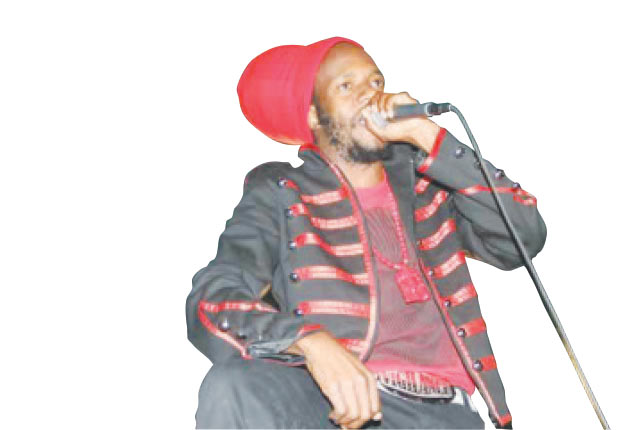ANC to elect Zuma successor in most hotly contested poll in party history

Cape Town — The African National Congress is due to elect a new leader next month and the race is proving to be one of the most hotly contested and divisive in the 105-year-old party’s history.
The front-runners to succeed President Jacob Zuma are his deputy Cyril Ramaphosa and Nkosazana Dlamini-Zuma, Zuma’s ex-wife and the former chairperson of the African Union Commission, with ANC Treasurer General Zweli Mkhize seen as a possible compromise candidate.
While it remains guesswork who’ll win, what’s clear is that the outcome will have profound implications for the South African economy and the continent’s oldest political movement.
Here are four possible scenarios of how the leadership race could play out:
1. Ramaphosa wins
After securing control of the ANC by a narrow margin, Cyril Ramaphosa faces a dilemma: Does he follow through on his campaign pledge to clamp down on the corruption that’s characterised Zuma’s eight-year tenure and risk widening fissures within the party and alienating some of its top power brokers who benefit from the graft?
Ramaphosa could try and prove his mettle and consolidate his grip on power by orchestrating Zuma’s removal as the nation’s president before his second term ends in 2019.
While financial markets are likely to initially cheer Ramaphosa’s victory, he’ll need to move swiftly to revive the moribund economy, rein in government debt and improve the management of state companies to maintain the positive sentiment.
2. Dlamini-Zuma wins
Nkosazana Dlamini-Zuma’s victory raises the odds that Zuma, who backed her campaign, will serve out his second term. That prospect is unlikely to go down well with investors, who were banking on an end to years of policy missteps, misspending and inappropriate appointments.
A pending Dlamini-Zuma presidency is also likely to further unsettle the markets. On the campaign trail, she espoused a series of populist policies to redistribute wealth and land to the black majority.
There’s a chance that Ramaphosa’s supporters will break away from the ANC should he lose the contest for the top job and form a new political party backed by a number of its top officials, labour unions and communists.
3. Mkhize wins
ANC bosses in the nine provinces could engineer victory for Zweli Mkhize, who’s positioned himself as a candidate who can maintain party unity.
Zuma would probably then stay on as president while the ANC’s new leadership decides what to do with him and determines how Ramaphosa and Dlamini-Zuma should be accommodated in the next administration.
Financial markets and investors would likely go into holding mode, awaiting clarity on economic policy, appointments and the outcome of the next election.
Efforts to revive the economy and provide jobs for the army of unemployed may stall, hampering the ANC’s re-election campaign.
Meanwhile, candidate Lindiwe Sisulu has rubbished leaders who have dubbed her ANC “royalty” and say she thinks she’s better than some of her comrades.
Sisulu said ahead of her fund-raising gala dinner in Hartbeespoort this week that members were being malicious and this was nothing more than “pull her down syndrome” at play.
Sisulu is the daughter of struggle veterans, Walter and Albertina Sisulu.
“I have been in the struggle all my life and I am only coming across it now because it only suits certain people. If I behaved like royalty I would have been royalty from the age of six when I joined the struggle,” said Sisulu.
Though she mentioned the age of “six” in her interview, she later clarified on social media that the actual age she joined the struggle was 16.
She added that if she was indeed ANC “royalty” she would not have experienced the persecution she did during the struggle years.
According to the Daily Dispatch, Sisulu last month attacked ANC secretary general Gwede Mantashe’s character, blaming him for divisions in the party and questioning his struggle credentials.
Mantashe, in response to Sisulu’s comments, said: “When you serve royalty you are invisible.”
EFF leader Julius Malema, in his criticism of Sisulu and her presidential campaign, referred to the former member of Umkhonto weSizwe as thinking she is “ANC royalty”.
Sisulu said that people saying those things were being malicious.
“It is not done with good intent and it is not going to take us anywhere,” she said.
One of her campaign’s members, Thozamile Botha, compared the phenomenon to what happened just after the post democracy era when black people started getting a stake in the country’s economy.
“When we came back post-1994 and when black people got into the economy, any black person who got in there, they were seen by the other side as ‘affirmative action’ or ‘corruption’ . . . all the negative things,” said Botha.
In likening the comments about Sisulu to that period, he said people would look for anything negative to cast aspersions against someone.
“Here is a woman, who is capable, who has a history . . . [in the] struggle and the only way to disarm her is to use this negative perception of her.
“They couldn’t find anything to link her to corruption and some of the divisions happening within the ANC. The only thing that was juicy was to say… ‘you come from the Sisulu family therefore we will use that to say you just want to ride the election train’,” said the Sisulu campaign council member.
Sisulu added: “No one will say Comrade Cyril (Ramaphosa, one of the party’s presidential frontrunners) is capitalist royalty, it just wouldn’t work. It works on women because it’s much easier.” — Sapa











Comments